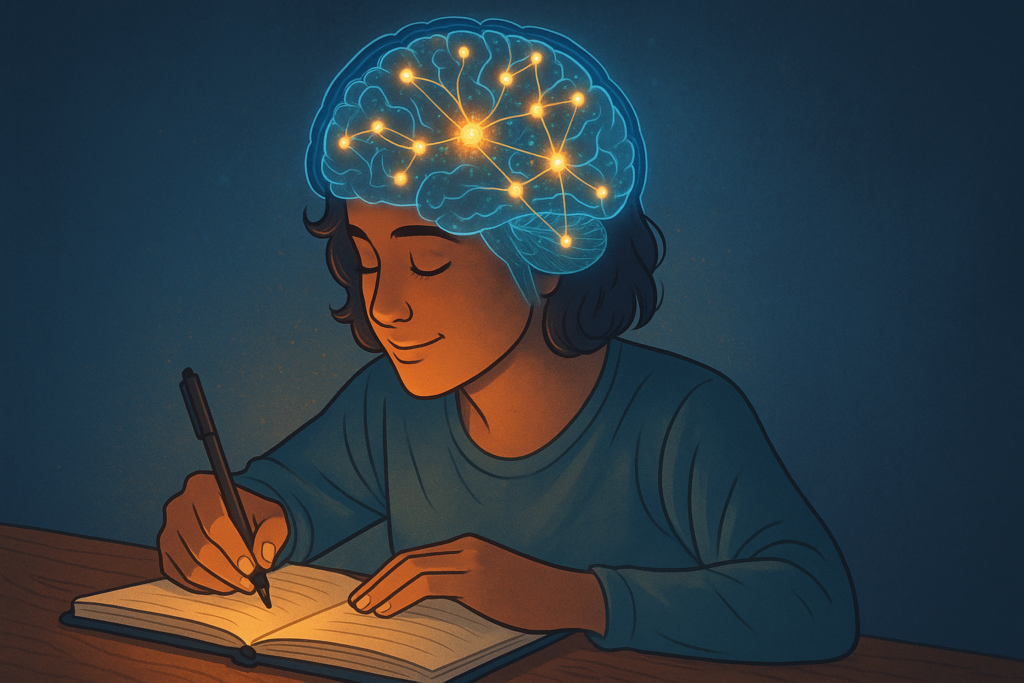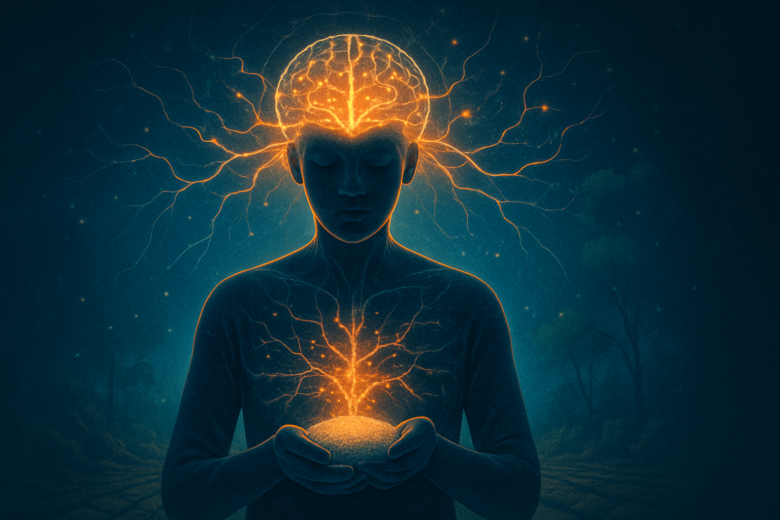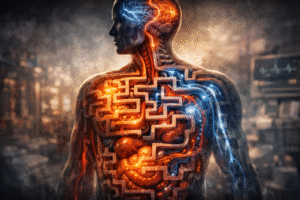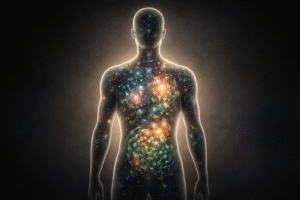Fun Fact: Your brain creates new neural connections every day—even in your 80s!
When we hear the word “plastic,” we think of something synthetic and unchanging. Ironically, when we talk about “brain plasticity,” we’re talking about one of the most dynamic, ever-evolving systems known to humanity—your brain.
“Brain Plasticity: How Your Mind Can Heal, Adapt, and Grow” is more than just a science headline—it’s a revolution in how we understand ourselves. From stroke survivors relearning how to walk to toddlers effortlessly picking up three languages, the human brain possesses a near-magical ability to rewire and adapt itself. The best part? This power isn’t reserved for geniuses or superhumans. You have it too.
What Is Brain Plasticity?
Brain plasticity, also known as neuroplasticity, refers to the brain’s ability to reorganise itself by forming new neural connections throughout life. It’s how we learn, adapt, recover from injury, and build habits. Whether you’re learning to play the piano or recovering from emotional trauma, your brain is literally reshaping itself in response.
Once, scientists believed that the brain stopped changing after childhood. But modern neuroscience has shown that our brains remain malleable until the day we die. This breakthrough changes everything—from how we treat mental illness to how we age gracefully.
The Science Behind the Shift
Our brains consist of roughly 86 billion neurons (nerve cells), all firing, communicating, and forming connections called synapses. When we repeat a thought or action, these synapses strengthen—a process known as Hebbian learning (“neurons that fire together, wire together”).
For example, if you practice gratitude daily, your brain starts to prioritise and reinforce those patterns of thought. On the flip side, negative thinking can wire your brain toward anxiety and stress. That’s how deeply our thoughts shape our biology.
Brain plasticity operates in two main ways:
Functional Plasticity: When one area of the brain takes over a function lost due to injury (e.g., after a stroke).
Structural Plasticity: When the brain actually changes its physical structure in response to learning and experience.

Case Studies: Real People, Real Transformation
Stroke Recovery in Action:
In a famous study, stroke patients who had lost motor skills were able to recover movement through “constraint-induced movement therapy,” which forces the use of the affected limb. Their brains adapted by rerouting motor functions to different regions.
Taxi Drivers in London:
A 2000 study found that London cab drivers had a significantly larger hippocampus (the brain area responsible for spatial navigation) than the average person, developed through years of navigating the city without GPS.
The Girl with Half a Brain:
A nine-year-old girl underwent a hemispherectomy (removal of half her brain) to treat epilepsy. Astonishingly, she retained most cognitive functions. Her remaining brain hemisphere adapted to compensate—an extraordinary showcase of plasticity.
Learning New Skills at Any Age:
Whether it’s learning a new language at 60 or picking up dance at 45, people consistently defy the old myth that “you can’t teach an old dog new tricks.” The brain’s plastic nature means we’re always capable of growth.
How Mental Habits Shape Your Brain
Plasticity isn’t just about trauma recovery—it’s also about everyday learning and behaviour. Consider:
Mindfulness meditation has been shown to thicken the prefrontal cortex (associated with attention and decision-making).
Chronic stress shrinks the hippocampus, affecting memory and mood regulation.
Positive visualisation activates reward systems in the brain, reinforcing motivation.
In essence, your brain becomes what you repeatedly do. If you binge social media, you train your brain to crave fast dopamine hits. If you journal every day, you build neural networks for introspection and clarity.
Brain Plasticity and Mental Health
Depression, anxiety, PTSD (Post-Traumatic Stress Disorder), and even addiction can be influenced by plasticity. Negative experiences can engrain unhealthy neural patterns—but the flip side is also true.
Cognitive Behavioural Therapy (CBT) works by helping patients “rewire” their thoughts and behaviours. Research shows that CBT can cause physical changes in the brain’s structure, including the amygdala (emotional centre) and prefrontal cortex.
Even psychedelics, such as psilocybin (found in magic mushrooms), are being studied for their role in enhancing plasticity. In guided therapeutic settings, these substances show promise in helping people break out of rigid, destructive patterns.
Everyday Ways to Boost Your Brain’s Plasticity
You don’t need a lab or therapy room to grow your brain. Here’s how to do it at home:
Learn New Skills: Try playing an instrument, learning a new language, or even switching your dominant hand for simple tasks.
Exercise Regularly: Physical activity increases Brain-Derived Neurotrophic Factor (BDNF)—a key molecule in neuroplasticity.
Sleep Well: Deep sleep helps consolidate memories and clear out neural waste.
Practice Gratitude and Journaling: Reflective habits improve emotional regulation and increase brain flexibility.
Stay Social: Meaningful conversations challenge your brain and prevent cognitive decline.
Eat Brain-Friendly Foods: Omega-3 fatty acids (found in walnuts and fish), antioxidants (berries), and probiotics support neural health.
Is There a Downside?
Plasticity isn’t always positive. The brain doesn’t judge—it just adapts. So if you feed it stress, addiction, or negative self-talk, it will wire itself accordingly.
The phenomenon of phantom limb pain (where amputees feel pain in a limb that’s no longer there) is a dark example of plasticity gone wrong. Similarly, habits like compulsive gaming or doomscrolling can create obsessive neural loops.
In short, your brain will grow where you focus it—so be mindful of what you’re watering.
The Future: Can We Hack Plasticity?
Neurotechnology is now trying to hack this plasticity:
Brain-Computer Interfaces (BCIs) from companies like Neuralink (a neurotech company founded by Elon Musk, aiming to merge the brain with AI) are exploring ways to restore function in paralysed individuals by directly interfacing with the brain.
Transcranial Magnetic Stimulation (TMS) is a non-invasive technique used to treat depression by stimulating specific brain regions.
Virtual Reality (VR) tools are being used for pain management, phobia treatment, and even rehab for stroke patients.
These advances suggest that we are just scratching the surface of the brain’s adaptability.
Conclusion: The Mind Is a Muscle—Use It or Lose It
Your brain is not a machine. It’s a living, evolving organism that reshapes itself with every thought, habit, and experience. Brain plasticity is your mind’s built-in superpower—a biological reminder that change is always possible, no matter your age or background.
So the next time someone says, “That’s just the way I am,” remember: the science says otherwise.
Your mind can heal. Your mind can adapt. Your mind can grow. The only question is—will you let it?
Author’s Note:
I’ve always been fascinated by how science reveals the hidden resilience within us. Brain plasticity is a powerful reminder that we are not prisoners of our past—we’re participants in our future. I hope this article inspires you to view your brain as a garden: prune it, water it, and watch it bloom.
G.C., Ecosociosphere contributor.
References and Further Reading:
- The Brain That Changes Itself by Norman Doidge
- Harvard Health: How to Improve Neuroplasticity
- NIH: Brain Plasticity Research
- Neuroplasticity: Rewiring Your Brain for Success – ansiandyou™. https://ansiandyou.life/neuroplasticity-rewiring-your-brain-for-success/
- . https://ownthereality.com/unlocking-the-serenity-within-the-transformative-power-of-mindfulness-meditation/
- Can TMS Make Depression Worse? Analyzing Potential Risks and Outcomes – Rest Equation. https://restequation.com/can-tms-make-depression-worse/
- Role of Technology Enhancing Health: Revolutionizing Personalized and Proactive Care. https://www.digicast-technologies.com/role-technology-enhancing-health-revolutionizing/




